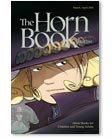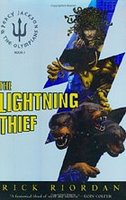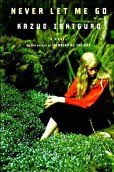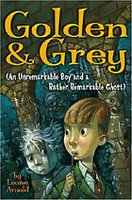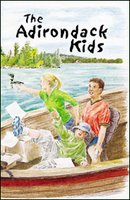Some Thoughts On Writing That I Can't Keep To Myself
I was just reading the most recent post at Storyglossia and Steven, who I think I will start referring to as The Storyglossia Guy because I don't actually know him, said something so interesting. Perhaps, like myself, you've always heard that writers should show and not tell? Well, The Storyglossia Guy explains why. It robs readers of the opportunity to interpret the story themselves. You're robbed of your Aha! Moment.
Perhaps, like myself, you have also always heard that stories have great significance for mankind. We're into stories. Well, Storyglossia Guy explains that, too. "In life we tell stories to make sense of and to cope with our experiences."
I suspect that this is one of those really obvious things I should have interpreted for myself but, instead, had to be told. I tend to be that way.
This totally explains some stuff Philip Pullman said in last year's New Yorker article about what can be learned from reading fiction. If fiction writers tell stories to make sense of and cope with experience, then, yes, we ought to be able to learn something from what they have to say. In theory, anyway.
Poetry Friday
Some of the other kidlit blogs are doing poetry Fridays. Though I have made some feeble attempts to read poetry and even to write it, my knowledge of it remains very limited. So today I will tell a poetry story instead of publishing a poem.
When I was in college, I worked three summers in the kitchen at the Bread Loaf Writers' Conference. (Forgive me if I've told this story before, by the way.) The kitchen staff could attend all the public events at the conference because once we were out of our uniforms and in our cutoffs and tee-shirts, it was hard to tell us from the younger writers. One night while dinner was being served, the waiters (who were writers on work/study, so to speak) came through the kitchen all excited. "Anne Sexton is here! Anne Sexton is here!" they kept saying. She had come to visit her friend, Maxine Kumin.
I would have been really excited about this, too, if I had a clue who either of these people were.
So, that evening, instead of going to hear Anne Sexton give a reading or a lecture or something in the lovely little theater on that mountain campus, I went to the pond to go skinnying with my girlfriends from the kitchen. Keep in mind, folks, at that point in my life, I didn't know how to swim. I was sort of skinnywading.
This was probably in the summer of '73. A little more than a year later, Anne Sexton would give her last reading.
This story must have some meaning, though I'm not sure what it is. Perhaps something about me never being quite in step with the rest of the literary world.
(Thanks to Blog of a Bookslut for the link.)
One last poetry note: Liz at A Chair, A Fireplace and a Tea Cozy posted two poems today that I absolutely loved when I was a teenager. I think I copied them over once. I don't know what the heck I thought I was going to do with them.
